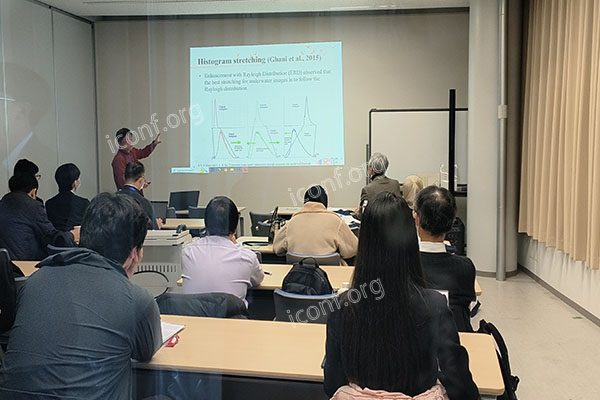In the rapidly evolving field of systems engineering, academic conferences provide a unique platform for sharing innovative research, discussing complex systems integration, and fostering global collaborations. Responding to a Call for Papers (CFP) in systems engineering not only enhances your academic profile but also drives technological advances and operational excellence across diverse industries.

Global Exposure and Networking
International Audience: Present your research to a global network of experts, practitioners, and policymakers.
Professional Growth: Enhance your academic reputation and open doors to interdisciplinary collaborations and funding opportunities.
Advancing Innovation in Complex Systems
Cutting-Edge Research: Contribute new insights on topics such as systems modeling, integration, optimization, and resilience.
Real-World Impact: Showcase how your work addresses critical challenges in large-scale systems, from aerospace and automotive to healthcare and telecommunications.
Constructive Peer Feedback
Expert Reviews: Gain valuable feedback from seasoned professionals, helping you refine methodologies and strengthen your conclusions.
Collaborative Environment: Engage in dynamic discussions that stimulate further innovation and research breakthroughs.
1. Understand the CFP Guidelines
Thorough Review: Carefully study the CFP to ensure your research aligns with the conference’s specific themes and scope.
Compliance: Follow all formatting, citation, and submission requirements meticulously to avoid technical rejections.
2. Craft a Compelling Abstract
Clear and Concise: Summarize your research question, methodology, key findings, and the overall significance of your work in a well-structured abstract.
SEO Optimization: Integrate relevant keywords like “systems engineering research” and “engineering innovation” naturally to boost discoverability.
3. Organize Your Manuscript Effectively
Structured Format: Adopt the IMRaD format (Introduction, Methods, Results, Discussion) to ensure your paper is logically organized and reader-friendly.
Visual Aids: Use high-quality figures, charts, and diagrams to illustrate complex concepts and validate your data.
4. Highlight Originality and Practical Impact
Innovative Contributions: Clearly articulate the unique aspects of your research and how it advances the field of systems engineering.
Practical Applications: Discuss the potential implications and real-world benefits of your work, emphasizing its role in solving complex system challenges.
5. Ensure Professional Presentation
Proofreading and Editing: Utilize professional editing services to polish your manuscript and eliminate errors, particularly if English is not your first language.
Adherence to Guidelines: Ensure all CFP requirements are met to facilitate a smooth review process.
For researchers looking to excel in systems engineering CFP submissions, iconf.org is a comprehensive resource that offers:
Curated CFP Listings: Quickly access a wide array of international systems engineering conference CFPs from a single, centralized platform.
Expert Submission Guidelines: Benefit from detailed, field-specific instructions and best practices that help you prepare a competitive manuscript.
Global Networking Opportunities: Connect with a vibrant community of scholars, industry experts, and potential collaborators to foster interdisciplinary partnerships.
Integrated Academic Resources: Explore high-quality academic papers, journals, and datasets to support and enhance your research.
Responding to a Call for Papers in systems engineering is a powerful opportunity to showcase your innovative research, gain global recognition, and drive the evolution of complex system solutions. By following best practices in manuscript preparation, crafting a compelling abstract, and leveraging the extensive resources available on iconf.org, you can maximize your research impact and join a dynamic international community.
Take the next step in your academic journey—prepare your CFP submission today and join a global network of experts dedicated to transforming the future of systems engineering. Visit iconf.org now to explore additional resources and unlock new opportunities for academic excellence.